 | ||
|
| ||
|
Special thanks to The Clinton Foundation, CARE, Sheila Johnson, President George H. W. Bush's Points of Light Foundation and many others for their inspiration in establishing Veronica's Story Foundation. | ||
| ||
| ||
| ||
| ||
| ||
| ||
| ||
| ||
| ||
| ||
| ||
| ||
| ||
| ||
| ||
| ||
| ||
| ||
| ||
| ||
| ||
| ||
|
| ||
|
Veronica's Story Foundation 1490-5A Quarterpath Rd #185 Williamsburg, VA 23185 757-243-3025 Send Us  E-mail
E-mail
© Copyright 2007 VeronicasStory.org All Rights Reserved |
| OUR PROJECTS |
VSF Educates

VSF currently sponsors two primary school students through two years of school. The children have lost one or more of their parents and would not otherwise have access to this type of education.
The school day includes nutritional meals and access to clean water, which is key to survival.
We will be profiling the VSS (Veronica's Story Students) in the near future, allowing you to track their progress - including report cards.
VSF Wheels For Orphans
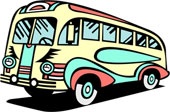
This program is being designed to help raise funds to purchase minivans for orphanages in South Africa and Ethiopia. These large vehicles are desperately needed to transport children to clinic visits and various activities. They will also be used for transporting much needed supplies.
The current need is for a large van for an orphan's haven, which is part a larger homeless and HIV program in Johannesburg, South Africa.
The goal of the project is:
-Partner with the US auto-makers or dealerships
-Acquire 5 minivans
-Involve employees of contributing companies
-Raise awareness about the orphan crisis and HIV/AIDS
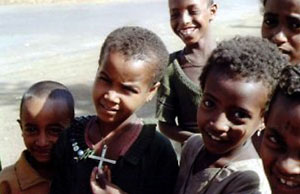
Erma Millard Charles
Tampa, Florida
While in Ethiopia, we met with and learned from some outstanding workers in orphan care. Much of our focus centered around HIV/AIDS.
Pediatric AIDS in Addis:
We visited two of AHOPE’s pediatric AIDS facilities. The first housed relinquished babies through toddlers and the second housed pre-teens and teens (I estimate that each facility
housed between 30 – 40 children). The women who ran these facilities were the most selfless and warm caregivers that I have ever met. They sincerely cared for and showed loved to each child. They knew each child’s individual personalities, health issues and needs. The physical wounds of AIDS infection were evident in many of the children we met and the need for love and hugs and toys and medicine and food and clothes and shoes and toiletries (…and the list goes on) …and hope and to have a future…is no different from the kids in my own family. Then there was little Bethlehem…a baby girl about 1 year old relinquished into AHOPE’s care and who had the face of an angel. I often think of Bethlehem since we returned. At the time we met her at AHOPE, her tiny frail body was so weak that she was unable to hold herself up. We tried to get her to stand but her legs buckled. I stroked her face and her hair and I looked into her eyes and they said “I have no hope.” She steered blankly as she sucked in her mouth and lips…she was non-responsive.
Update - we have since learned that Bethlehem is now responding well and is gaining weight. It is unclear if she is or will be a candidate for adoption.
At the second AHOPE facility I met some proud, determined young ladies playing as all young girls do. Though affected by AIDS, they were fighters and were just as feisty as any pre-teen and teenager that I know. I can’t forget the young Missy who sat on the steps of her dormitory and was speaking authoritatively as if holding court surrounded by 3 or 4 other girls in her age group. We are told that she loved to play soccer and was good at goal keeping. The older children we met here pretty much kept to themselves during our visit. However there were those children in this facility, we are told, had moved beyond feeling embarrassed by the stigma of AIDS to leading the charge to educate others by participating in plays and other community outreach activities. In Ethiopia, as with many developing countries, the lack of education about AIDS combined to religious and cultural beliefs make the subject of AIDS and AIDS prevention taboo. Typically the afflicted are ostracized.
Taking Action:
There are organizations “on the ground” working hard in the front lines within a number of communities in Addis to make a difference and affect positive change in the lives of disadvantaged children. We were fortunate during our visit to have the opportunity to see upfront the work of two such organizations; CARE and the WWO Barlow Clinic. Both facilities were quite impressive...and there is a great need for the type of work that these organizations are doing to continue. However a lot more needs to be done for disadvantaged and parentless children in Ethiopia.
The CARE facilities that we toured focused on providing a ‘safe space’ for disadvantaged children to learn, play, share and have a ‘sense of belonging. At CARE we were generously given tours of their new HQ in Addis and two community/activity centers. CARE works with both children affected by AIDS and those that are disadvantaged. One center we visited provided a library, reading/study space and tutorial services for children in the local community. The other facility was a newly constructed multi-floor building that accommodated many activities for children, including an exercise area. But for the availability of these facilities, we suspect that the children that we met at the CARE community centers would easily wind up among the ranks of the children we often encountered on the streets of Addis Ababa.
Barlow we found to be a well-established full service clinic that provided free HIV testing, antiretroviral drugs (ARV) and other healthcare services to both adults and children affected by AIDS. It was here that we met 7-year old Mekdes who is our first VSF Featured Child. By being a full service healthcare facility, Barlow is able to win the trust those in the local community who are either affected by AIDS and who might not normally come forward to be tested and receive medical treatment as well as those who have more standard healthcare needs.
What We’ve Learned…What We’ll Do…:
The trip provided invaluable learning opportunities for VSF. Our tours of CARE, the WWO Barlow Clinic and AHOPE orphanage has helped us to see “up close”, touch and understand the needs of disadvantaged and parentless children in Ethiopia, but more importantly learned how we can help. We learned that the most effective way to directly touch and positively impact the lives of disadvantaged children in Addis is by partnering with organizations with footprints “on the ground” or by working with local social workers and other community leaders who “see and touch” the needs each day. We found that there is an immediate need for medical supplies, clothes and other basics for pediatric orphans affected by AIDS. Our observation too is that the family unit is alive and strong in Ethiopia, unlike many other nations where we have offered assistance. That said, it was clear to us that a more sustainable solution lies in supporting programs that keep families impacted by AIDS together, that help bring clean running water to care centers and impoverished areas, that support programs that educate and empower children, that provide general healthcare and preventative medical services such as immunization and vaccination for all children and those that help promote AIDS awareness and prevention within the broader community.
To this end, VSF has been exploring ways to initiate our work in Ethiopia by trying to support efforts to launch community outreach programs with a different approach. These programs would provide decentralize healthcare services more locally and in the rural areas by (1) creating local health centers that will eliminate the need for families make the trip into Addis to relinquish children and (2) within Addis, directly support families afflicted by AIDS by set up a network of social workers who privately visit the homes of these families provide treatment and monitor progress.
The overarching goal here is to minimize the need to relinquish children and remove the fear/stigma of being ostracized thereby protecting the family unit…the truest source for hope and love for all children.
And - please don't forget to donate because we cannot do any of this without YOUR financial support!
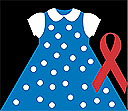
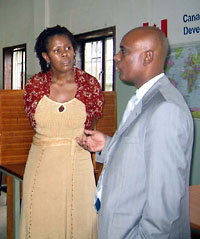
Erma Charles and Dr. Assefa Amenu
CARE HIV/AIDS Program Coordinator
The WWO's Barlow Clinic believes there are over 120,000 children in Ethiopia who are infected with HIV/AIDS. And, as their mothers and fathers fall victim to the disease, many of these children are placed in orphanages.
Through their remarkable work, they have concluded that psycho- social intervention is the best approach to dealing with the care of HIV positive children. And they stand behind their theory, despite the lack of scientific data, because they witness the results more and more - everyday.
Dr. Sophia Mengistu.. in her own words.
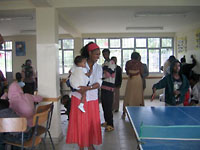
Tracey, and her then soon to be adopted daughter Emebet, along with Erma and Juliet at CARE youth center for HIV positive teens.
Whilst in Ethiopia we delivered your many suitcases generously loaded with donations to each clinic and orphanage. They were most grateful and so are we.
While in Ethiopia: We Delivered YOUR Donations!